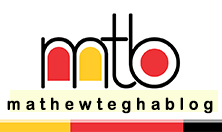In recent years, the Plateau State Government under the leadership of Barrister Caleb Mutfwang has initiated a transformative project aimed at revolutionizing public transport within the Jos Bukuru Metropolis and its surrounding areas. This initiative, centered around the introduction of township buses, carries significant implications for the masses, particularly in light of challenges such as fuel scarcity and its associated costs that have long plagued the people of Plateau State.
The introduction of township buses marks a pivotal moment in the transportation landscape of Plateau State. These buses, designed to provide affordable and efficient transport services to residents, come at a time when the region is grappling with the recurring issue of petrol scarcity. This scarcity not only leads to long queues and inconvenience but also drives up the costs of transportation, impacting the daily lives of ordinary citizens.
One of the primary advantages of the township bus system is its potential to mitigate the effects of petrol scarcity. By offering a reliable alternative to private vehicles, these buses reduce the overall demand for fuel in the region. This, in turn, can alleviate some of the pressures associated with fuel shortages, easing the financial burden on individuals and businesses alike. Moreover, the centralized nature of the bus routes allows for optimized fuel usage, contributing to environmental sustainability efforts.
Beyond the immediate relief from petrol-related challenges, the introduction of township buses carries broader socio-economic benefits for the people of Plateau State. Improved access to affordable transportation opens up new opportunities for economic activities, as individuals can more readily commute to work, school, markets, and other essential destinations. This increased mobility fosters economic growth by facilitating the movement of goods and services and enhancing productivity across various sectors.
Furthermore, the township bus system plays a crucial role in enhancing social inclusion and cohesion within the community. By providing a mode of transport that is accessible to all socio-economic groups, regardless of their ability to afford private vehicles, these buses promote a sense of belonging and interconnectedness. They enable individuals from diverse backgrounds to interact, share experiences, and participate more actively in the social fabric of the region.
In terms of environmental impact, the shift towards a more organized and efficient public transport system represents a step towards sustainability. By encouraging more people to use buses instead of personal cars, the township bus initiative helps reduce carbon emissions and alleviate traffic congestion. This aligns with global efforts to combat climate change and promote eco-friendly transportation alternatives.
Importantly, the success of the township bus system hinges not only on its operational efficiency but also on factors such as affordability, accessibility, and safety. The Plateau State Government, under Barrister Caleb Mutfwang’s stewardship, has taken proactive measures to ensure that these buses are well-maintained, accessible to all segments of the population, and equipped with safety features to protect passengers.
Looking ahead, the continued expansion and enhancement of the township bus network hold tremendous potential for Plateau State. By integrating modern technologies such as GPS tracking, digital payment systems, and real-time passenger information, the system can further improve its reliability and convenience. Moreover, strategic partnerships with private stakeholders and community engagement initiatives can foster a sense of ownership and collective responsibility toward maintaining and improving the public transport infrastructure.
In conclusion, the introduction of township buses by the Plateau State Government, spearheaded by Barrister Caleb Mutfwang, represents a significant milestone in addressing the challenges of mass transportation, particularly in the context of petrol scarcity and its associated costs. This initiative not only provides a practical solution to immediate transport needs but also lays the foundation for a more sustainable, inclusive, and connected future for the people of Plateau State.
Content by: Assoc. Prof. Dr. Elias Nankap Lamle
Centre for Conflict Management and Peace Studies
University of Jos.










